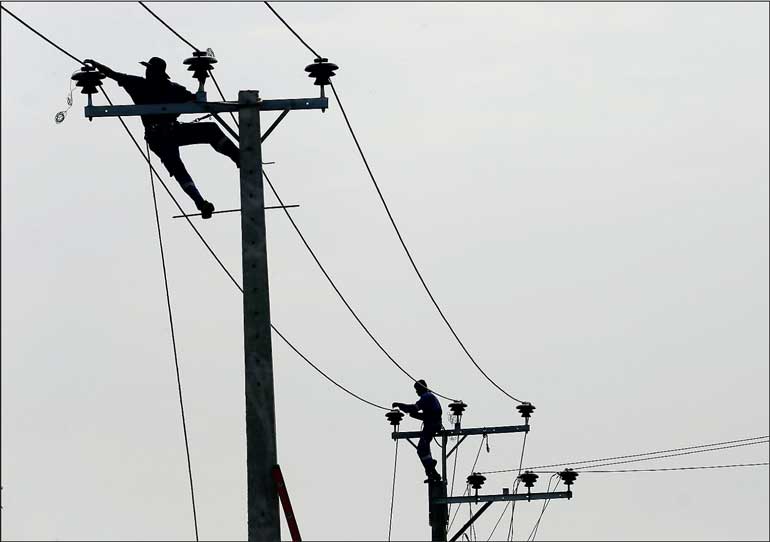Tuesday Feb 17, 2026
Tuesday Feb 17, 2026
Friday, 22 October 2021 00:00 - - {{hitsCtrl.values.hits}}

A consistent and streamlined long-term policy framework is needed by Ceylon Electricity Board (CEB) to provide electricity supply to its customers at an affordable price, the newly-launched Senior Engineers Association of CEB says.
“We believe that the Ceylon Electricity Board should modernise and adopt changes in the energy market to resolve the upcoming energy crisis which is our responsibility though we have capacity to face such a crisis,” the association consisting of senior engineers of CEB says.
Sri Lanka’s current energy policy focuses more on adding renewable energy to the national grid. Therefore, establishment of a consistent, efficient framework within CEB is more crucial at this point of time while focusing on obtaining maximum support of the knowledgeable and skilful engineers of CEB to implement the national policy.
“CEB should carry forward with short term, mid-term and long term reforms to address efficiency of operational framework of CEB and to improve financial position of CEB. Use of modern technology is inevitable to move forward to face the energy crisis and adopt a national policy framework.”
CEB Senior Electrical Engineers Union President Dr. H. M. Wijekoon Banda said that a proposal would be made shortly to modernise CEB to expedite the construction of low cost power plants, to avoid high cost emergency power purchases and to keep electricity tariffs stable for the next five years.
“A major obstacle in the implementation of the CEB's plans is limited time available for experienced senior electrical engineers who hold senior positions to continue in the same positions. This becomes a huge hurdle in the continuity of such plans and such plans become inactive in the long run. CEB loses the services of senior electrical engineers with experience in specialised fields when they reach 60 years of age. Although the retirement age for specialists in the medical field is 65 years, veteran engineers are required to retire at the age of 60. Due to this compulsory retirement, senior electrical engineers will have limited time to work in the posts such as general manager, additional general managers and deputy general managers which fall in top management categories of CEB. This situation adversely affects the accountability and performance of such positions. In order to continue implementing the long-term generation, transmission and distribution of CEB and service to the customers, a decision must be made quickly to obtain the services of senior electrical engineers for a sufficient period of time. It should be noted that the Ceylon Electricity Board Act too has such provisions for these changes,” he added.
CEB has a strength of more than 800 engineers. The Senior Engineers Association of CEB also indicated that increasing the retirement age to 61 as an interim solution was prudent at this time as senior engineers possessed the required skills and knowledge to accommodate the national policy and convert it as a reality.
The CEB senior engineers point out that the above recommendation of extending retirement age up to 61 could be reviewed after one year of implementation to arrive at a permanent solution which could be adopted. Senior engineers also say this will minimise the knowledge gap of young engineers as the time will give them the chance to groom young engineers to face upcoming energy challenges. In line with this, the Senior Engineers Association recommends that modernising organisational structure should be adopted to promote young engineers on experience and seniority.
They also emphasise that the purchase of emergency power to overcome the power shortage should no longer be a solution. The association is confident that the above proposals will have a positive impact on maximising the contribution of senior and young engineers to achieve the target of generating 70% of renewable energy by 2030 in line with Government policy. The detailed proposal recommended by the Senior Electrical Engineers Union to solve the power crisis is due to be released at the end of November.